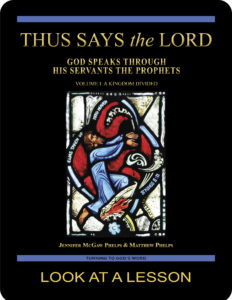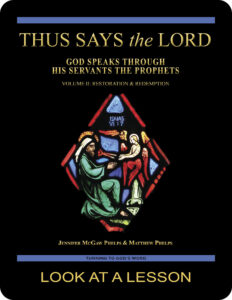corrupt
 The First Letter to the Corinthians 15:54–58 (NABRE) highlights the victory won by Christ over death and our share in it. Paul uses the image of the corrupt being clothed with incorruptibility and the mortal being clothed with immortality. While the notion of immortality is essential to the Christian message, the idea presented here of incorruptibility also is important.
The First Letter to the Corinthians 15:54–58 (NABRE) highlights the victory won by Christ over death and our share in it. Paul uses the image of the corrupt being clothed with incorruptibility and the mortal being clothed with immortality. While the notion of immortality is essential to the Christian message, the idea presented here of incorruptibility also is important.
In English, the word corruption most often is used to describe a moral failing. Corrupt administrators or politicians are common examples. The Greek word, however, has a different root meaning that is more applicable in the context of this passage. φθαρτός (phthartos) refers to spoil or decay. Used in Paul’s First Letter to the Corinthians, we see that in Christ we not only are unaffected by death but are unaffected by the ravages of time and the elements.
Seeing as how this doesn’t seem to be literally true—Christians still experience not only death but also aging and decline—consider the ways in which Christ renders us immune to decline or decay.
you also may like our two-part study of the prophets

 Thus Says the LORD: God Speaks Through His Servants the Prophets—Volume I: A Kingdom Divided examines the prophets in their historical context using the First and Second Books of the Kings and other Old Testament passages written before the Babylonian Exile in 586 B.C. Volume II: Restoration & Redemption looks at the post-exilic prophets. This 51-lesson Catholic Bible study builds on The United Kingdom of Israel: Saul, David & Solomon Foreshadow Christ the King. Click on the books’ covers to view a sample lesson from each volume.
Thus Says the LORD: God Speaks Through His Servants the Prophets—Volume I: A Kingdom Divided examines the prophets in their historical context using the First and Second Books of the Kings and other Old Testament passages written before the Babylonian Exile in 586 B.C. Volume II: Restoration & Redemption looks at the post-exilic prophets. This 51-lesson Catholic Bible study builds on The United Kingdom of Israel: Saul, David & Solomon Foreshadow Christ the King. Click on the books’ covers to view a sample lesson from each volume.
 Click on the picture of the statue of Moses with horns (above) to learn more about Lost in Translation. A new entry is archived each Monday. Contact us to receive Lost in Translation by email every week. You may use any of the contact links on our website to ask Matthew a question.
Click on the picture of the statue of Moses with horns (above) to learn more about Lost in Translation. A new entry is archived each Monday. Contact us to receive Lost in Translation by email every week. You may use any of the contact links on our website to ask Matthew a question.
